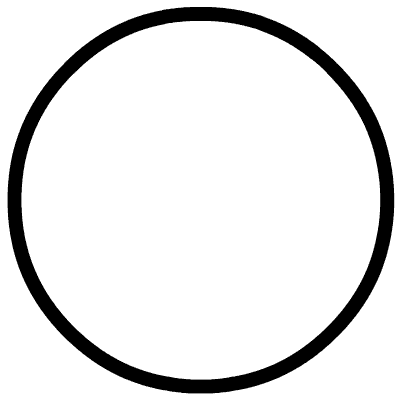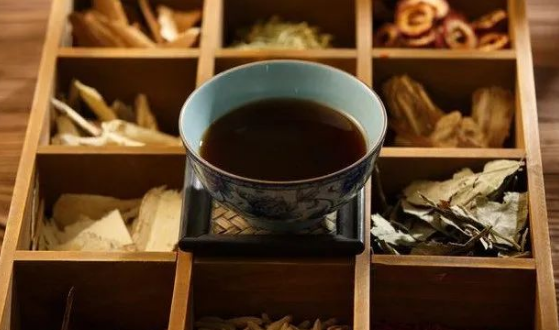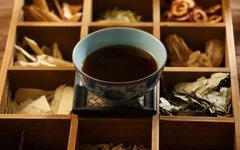Health Inquiry, Guidance, and Recommendations from Traditional Chinese Medicine Experts
See morehealth articlesWelcome to click the business card below to followTraditional Chinese Medicine Health Practices
Qi tonics, also known as Yi Qi (益气) herbs, are those that can treat conditions of Qi deficiency. They are effective in supplementing lung Qi and spleen Qi, suitable for conditions such as lung Qi deficiency and spleen Qi deficiency.
The spleen is the foundation of postnatal life and the source of transformation and transportation. When spleen Qi is deficient, symptoms may include fatigue, diarrhea, poor appetite, abdominal distension, and even edema or prolapse. The lungs govern the Qi of the entire body; insufficient lung Qi leads to shortness of breath, fatigue, and easy sweating. All of the above symptoms can be treated with Qi tonics.
Qi tonics are also commonly used for blood deficiency conditions, as abundant Qi can generate blood. Especially in cases of significant blood loss, Qi tonics must be employed, as “visible blood cannot be quickly replenished; invisible Qi must be quickly stabilized.” Therefore, in clinical practice, there is a method of “supplementing Qi to restore blood.”
However, improper use of Qi tonics can sometimes lead to symptoms such as chest tightness, abdominal distension, and reduced appetite, so caution is necessary.
1. Ren Shen (Ginseng)

【Effects】Greatly tonifies original Qi, supplements lung and spleen, generates fluids, calms the spirit.
【Clinical Applications】1. Used for Qi deficiency with impending collapse, weak pulse, etc.
Ren Shen is known for its powerful Qi tonifying effects, often used to rescue conditions of Qi deficiency and impending collapse. In clinical practice, in cases of shortness of breath, cold limbs, weak pulse, or collapse due to significant blood loss, it can be used alone as a decoction to supplement Qi and stabilize collapse; if Yang Qi is weak, it can be combined with Fu Zi (附子) to tonify Qi and restore Yang.
2. Used for lung deficiency and asthma.
When lung Qi is deficient, symptoms include shortness of breath, fatigue, and easy wheezing. This herb can supplement lung Qi and is often used with Ge Jie (蛤蚧) and Hu Tao Ren (胡桃肉).
3. Used for spleen and stomach deficiency, fatigue, poor appetite, abdominal distension, and chronic diarrhea or prolapse.
Ren Shen can invigorate the original Qi of the spleen and stomach, making it a key herb for spleen and stomach deficiency. It is often used with Huang Qi (黄耆) and Bai Zhu (白术) for fatigue and prolapse; for symptoms of poor appetite, abdominal distension, and diarrhea related to spleen deficiency, it can be combined with Bai Zhu, Fu Ling (茯苓), Shan Yao (山药), Lian Rou (莲肉), and Sha Ren (砂仁).
4. Used for thirst and heat-induced fluid loss.

Ren Shen can generate fluids and alleviate thirst, thus it can be combined with Sheng Di (生地) and Tian Hua Fen (天花粉) for thirst; if there is high fever and profuse sweating leading to heat injury and fluid loss, it can be combined with heat-clearing herbs like Shi Gao (石膏) and Zhi Mu (知母) to utilize its Qi tonifying and fluid generating properties; if there is heat injuring Qi and Yin, with thirst and profuse sweating, it can be used with Mai Dong (麦冬) and Wu Wei Zi (五味子) to achieve the effects of tonifying Qi, nourishing Yin, and reducing sweating.
5. Used for anxiety, palpitations, and insomnia.
Ren Shen benefits heart Qi and calms the spirit, making it a key herb for conditions of palpitations, insomnia, and forgetfulness due to Qi and blood deficiency. It is often used with blood-nourishing and calming herbs like Suan Zao Ren (酸枣仁), Gui Yuan Rou (桂圆肉), and Dang Gui (当归).
Additionally, Ren Shen can be used with herbs that dispel pathogens for conditions where the pathogen has not been cleared but the righteous Qi is already deficient, to support the righteous Qi against the pathogen.
2. Dang Shen (Codonopsis)

【Effects】Tonifies the middle and benefits Qi.
【Clinical Applications】Used for Qi deficiency, fatigue, shortness of breath, spleen deficiency with poor appetite, facial swelling, chronic diarrhea, and prolapse.
This herb is a commonly used Qi tonic, functioning to tonify the spleen and benefit the lungs, similar to Ren Shen but milder. It is suitable for various Qi deficiency conditions and is often used in combination with Huang Qi, Bai Zhu, and Shan Yao; for blood deficiency leading to fatigue and chronic bleeding, it can be combined with blood tonics like Shu Di (熟地) and Dang Gui.
【Prescription Names】Dang Shen, Lu Dang Shen, Tai Dang Shen (washed, dried, and sliced for use), and Chao Dang Shen (stir-fried with bran until slightly yellow, with a milder effect and better spleen tonifying properties).
【General Dosage and Administration】9 to 15 grams, decocted. Dried and ground into powder, taken in doses of 1 to 1.5 grams.
【Notes】1. Dang Shen can tonify the spleen and stomach while benefiting lung Qi, and can also tonify Qi to nourish blood, primarily used for spleen and stomach weakness and Qi and blood deficiency. It can also be used for conditions of both deficiency and excess, such as exterior pathogens with deficiency heat, combined with exterior-releasing herbs; for internal deficiency with excess, it can be combined with purgative herbs, both used to support the righteous Qi against the pathogen.
2. The Qi tonifying effect of Dang Shen is similar to that of Ren Shen, but it is milder; however, it is more abundant and less expensive than Ren Shen, thus it is often used in general tonics. However, in cases of critical Qi deficiency and collapse, Ren Shen should be preferred.
3. Huang Qi (Astragalus)
【Properties and Channels】Sweet, slightly warm. Enters the spleen and lung channels.
【Effects】Tonifies Qi, raises Yang, stabilizes the exterior, stops sweating, promotes tissue regeneration, and reduces edema.
【Clinical Applications】1. Used for Qi deficiency and weakness, fatigue, or sinking Qi leading to prolapse, uterine prolapse, etc.
Huang Qi strengthens the spleen and benefits Qi, and has the effect of raising Yang and lifting sinking Qi, thus it can be used for Qi deficiency and fatigue, as well as sinking Qi. In clinical practice, it is often used to tonify Qi and strengthen the spleen, commonly combined with Dang Shen and Bai Zhu; for raising Qi and lifting sinking Qi, it is often combined with Dang Shen, Sheng Ma (升麻), Chai Hu (柴胡), and Zhi Gan Cao (炙甘草).
2. Used for spontaneous sweating due to exterior deficiency.
Huang Qi functions to stabilize the exterior and stop sweating. For spontaneous sweating due to exterior deficiency, it is often combined with Ma Huang Gen (麻黄根), Fu Xiao Mai (浮小麦), and Mu Li (牡蛎); if there is exterior deficiency with susceptibility to wind-cold, it can be combined with Fang Feng (防风) and Bai Zhu.
3. Used for Qi and blood deficiency, internal abscesses, and non-healing ulcers.
Huang Qi can warm and nourish the spleen and stomach while promoting tissue regeneration, thus it is commonly referred to as a key herb for abscesses. In clinical practice, it is often used for Qi and blood deficiency, internal abscesses, and non-healing ulcers. For internal abscesses or non-healing ulcers, it can be combined with Dang Shen, Rou Gui (肉桂), and Dang Gui; for pus formation that does not heal, it can be combined with Dang Gui, Yin Hua (银花), Bai Zhi (白芷), Chuan Shan Jia (穿山甲), and Zao Jiao Ci (皂角刺).
4. Used for edema, dropsy, and facial swelling.
Huang Qi can benefit Qi and strengthen the spleen, promote Yang, and facilitate water metabolism, thus it can be used for edema with accompanying Qi deficiency symptoms, often combined with Bai Zhu and Fu Ling.
Additionally, this herb can be combined with blood-activating and stasis-dispelling herbs like Dang Gui, Chuan Shao (川芍), Tao Ren (桃仁), Hong Hua (红花), and Di Long (地龙) for conditions like stroke with hemiplegia, benefiting Qi, activating blood, and unblocking channels. It can also be used for diabetes, often combined with Sheng Di, Mai Dong, Tian Hua Fen, and Shan Yao.
【Prescription Names】Sheng Huang Qi, Mian Huang Qi, Bei Kou Qi (raw, often used for stabilizing the exterior, promoting tissue regeneration, diuresis, and relieving edema), Zhi Huang Qi (honey-fried, used for tonifying Qi and strengthening the spleen), and Qing Zhi Huang Qi (stir-fried with bran until slightly yellow, used for tonifying Qi).
【General Dosage and Administration】9 to 15 grams, decocted.
【Notes】1. Huang Qi, originally named Huang Qi, is a commonly used clinical herb. It has the following characteristics: it is often used with tonifying herbs to benefit Qi and replenish deficiency; it is also frequently used with herbs that dispel pathogens to support the righteous Qi against the pathogen. In terms of benefiting Qi and replenishing deficiency, it can be combined with Ren Shen for a great Qi boost; with Fu Zi for Qi and Yang support; with Bai Zhu for Qi and spleen support; with Dang Gui for Qi and blood support; and with Ren Shen, Bai Zhu, Sheng Ma, and Chai Hu for Qi tonification and Yang raising. In terms of supporting the righteous Qi against pathogens, it can be combined with Bai Zhu and Fang Feng in the Yu Ping Feng San (玉屏风散) to stabilize the exterior and stop sweating, treating spontaneous sweating due to exterior deficiency and susceptibility to wind-cold; in the Si Miao San (四妙汤) with Dang Gui, Yin Hua, and Gan Cao to internally nourish and detoxify, treating body weakness with abscesses; in the Fang Ji Fu Ling San (防己茯苓汤) with Fu Ling, Fang Ji, Gui Zhi, and Gan Cao to benefit Qi, promote Yang, and facilitate water metabolism, treating skin edema; and in the Bu Yang Huan Wu Tang (补阳还五汤) with Dang Gui, Xiong, Chi Shao, Tao Ren, Hong Hua, and Di Long to benefit Qi, activate blood, and unblock channels, treating hemiplegia. This illustrates the extensive clinical applications of Huang Qi.
2. Compared to Ren Shen and Dang Shen, Ren Shen has a stronger Qi tonifying effect and can generate fluids and calm the spirit; Dang Shen primarily tonifies the lung and spleen while benefiting Qi; Huang Qi’s Qi tonifying effect is not as strong as Ren Shen, but it has the unique ability to raise Yang, stabilize the exterior, and promote water metabolism, which Ren Shen and Dang Shen do not possess. Huang Qi is a Qi tonifying and Yang supporting herb, thus it is not suitable for conditions of Qi stagnation with dampness, food stagnation with chest tightness, heat toxin abscesses, excessive exterior pathogens, or Yin deficiency with Yang excess.
Traditional Chinese Medicine Experts Promote Health Knowledge
Click below to↓↓↓ follow for free

